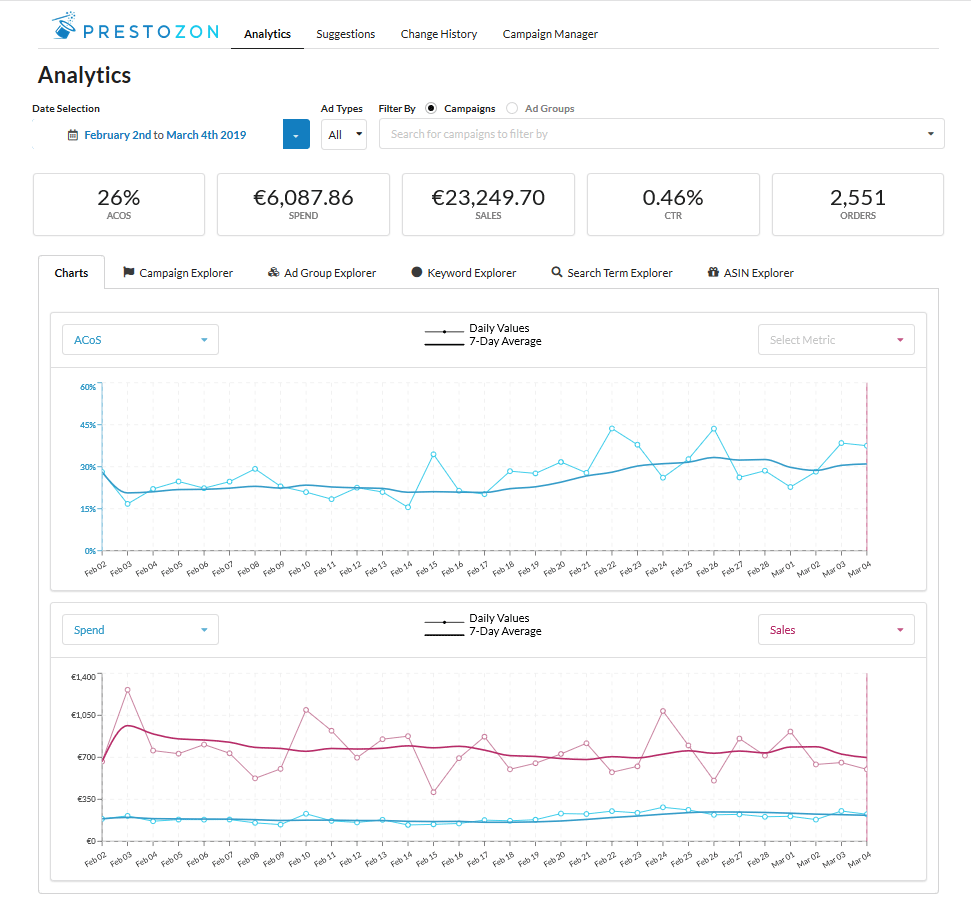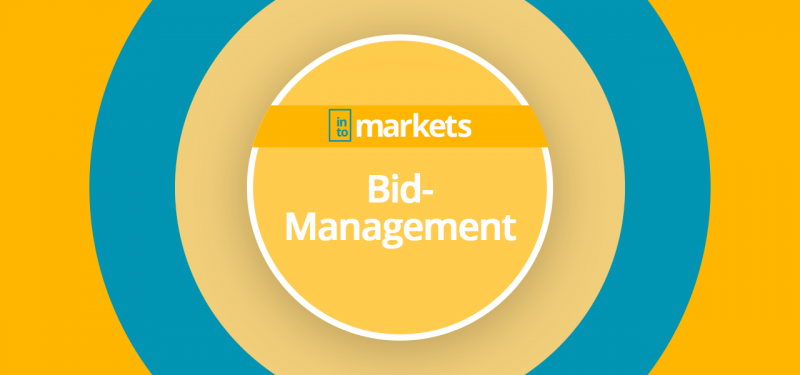What is Bid Management?
The term Bid-Management generally stands for tools that support ad management in the field of search engine marketing. AdWords campaigns can be automatically optimized with the Bid Management tool. The bid is adapted for keywords, ad groups, and campaigns to achieve the maximum profit. For instance, the system analyses which keywords have poor performance ratings and stop them.
The Bid Management core task is to manage the chosen keywords via the so-called paid search providers so that for each keyword, the optimal product is found and ranked accordingly.
APIs (programming interfaces) are used, which ensure real-time transmission. The Bid Management controls and structures the data flow required to organize and manage campaigns.
The basic strategies in Bid Management
There are four basic strategies in Bid Management
- The after-click maximization: Click maximization is often used when the advertiser has little to no data of his own at his disposal.
- Maximization by Conversion: Conversion maximization is especially suitable for campaigns that are not intended for direct sales, but rather for leads, downloads or newsletter subscriptions among others.
- Maximization based on revenue: When maximizing the income, the strategy aims to achieve the highest possible profit with a given budget. Here, the cost/revenue ratio (KUR) is decisive as opposed to cost per order or even cost per click. For this reason, keywords that are associated with high expenses are actively booked for as long as the revenue generated justify it.
- Maximization after profit: To maximize profit, one must add a component where advertisers can determine the exact margin amount of each purchase. The decisive factor in this strategy is the relationship between the profit from individual keywords and costs – regardless of how high the CPC or CPO is. Keywords with low CPO often achieve conversions with little turnover and profit. On the other hand, high-quality, more expensive keywords often generate the highest net profit.
The task of the Bid Management software is to find the optimal mix to get the maximum profit out of the advertising budget. Terms such as ROI (Return of Investment) and ROAS (Return on Advertising Spend) are also associated with Bid Management. About big advertising campaigns, effectiveness, and budget play a decisive role. For personal ads, you can be more flexible with financial resources; for example, it is possible to change and or add texts and keywords if they are not compelling enough.
Bid Management Tools
Bid Management tools work according to different principles: There are rule-based, portfolio-based and self-learning systems
- Rule-based systems: Have a set of pre-determined rules.
- Portfolio-based systems: The performance of the entire system is optimized.
- Self-learning systems: Measures the effectiveness of specific rules, changing them to take seasonal changes into account, either by adding rules or by omitting them.
In the Google Ads area, Bid Management tools are numerous and well established. In the Amazon Advertising sector, especially in performance marketing (more precisely in PPC campaigns), offered automation tools are also used. Click bids are managed either by rule-based or machine-learning approaches.

The advantages of Bid Management
Bid Management may deliver a superior reporting quality (as more data is often available) and may facilitate the placement of ads on search engines such as Google, Amazon, Bing or others. During a search campaign, Bid Management ensures that the existing keywords are automatically optimally coordinated, thereby maximizing the performance.
Bid Management falls into the category of the so-called performance marketing; its advantage is it ist self-learning characteristic, is also takes seasonal influences and fluctuations (Advent calendar at Christmas time) into account. As a result, a consistent and continuous optimization of all measures, an increase in performance and an increased conversion rate are to be achieved, facilitating the control of these.
Also, Bid Management offers a suitable process enabling you to compare a per-click payment method with a per-order invoice on your page, facilitating the process. This is because ad placement in search engine marketing is regularly based on CPC (cost-per-click) and invoiced, while CPO (cost-per-order) requirements often exist on the website itself.
Bid Management in practice
In practice, Bid Management can also be managed by SEM managers. For example, an SEM manager has the advantage of being able to act in advance. For instance, if an article is sold out, the system reacts with an algorithm which is not necessarily applicable to the problem. An SEM manager usually knows that a product is sold out and can modify its keywords and campaigns in advance. An SEM Manager is an advantage here because an algorithm is not necessarily 100% applicable to the problem in question.
Therefore experts also advocate that Bid Management should not be fully automated but should only be used to simplify or optimize certain processes – especially for large campaigns and ad groups.




